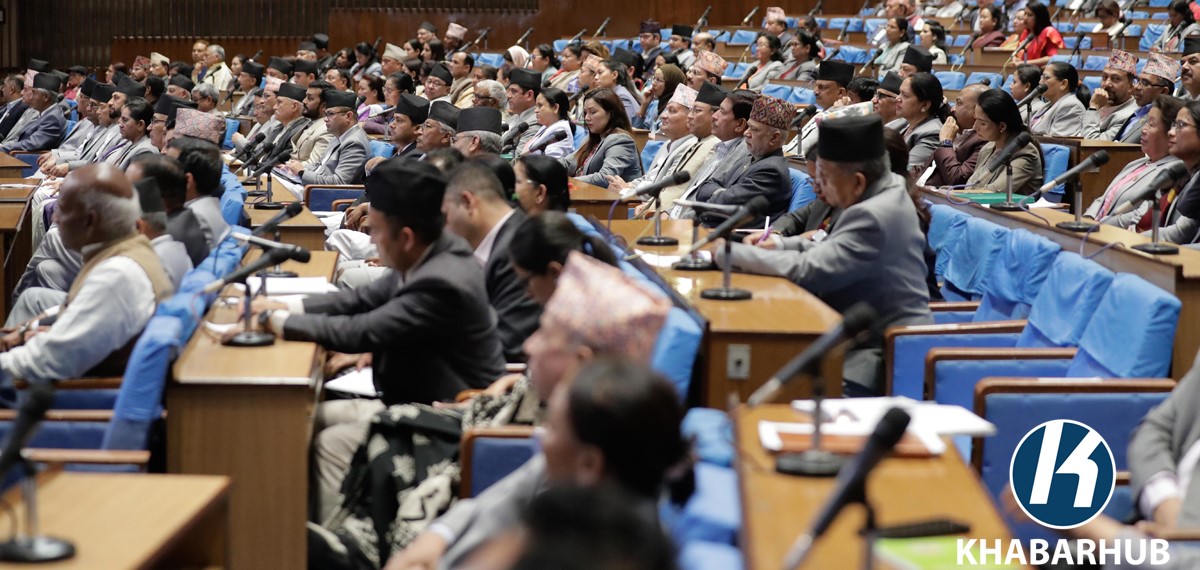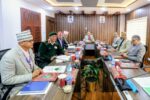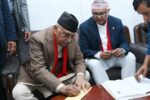KATHMANDU: While the main opposition Maoist Center and other opposition parties express concerns, the ruling parties have confirmed that the government is preparing to convene the winter session of the federal parliament in the first week of January.
Maoist Center Chairman Pushpa Kamal Dahal ‘Prachanda’ has warned that the opposition will demand a special session if the government fails to convene the session on time.
However, the ruling parties, Nepali Congress and CPN-UML, are proceeding with plans to call the session through the regular process.
Speaking at a recent program in Kathmandu, Prachanda stated that he had received information suggesting the government would not convene the session promptly.
He emphasized that the opposition would seek a special session if the winter session was delayed.
The following day, during a Maoist awareness rally in Bharatpur, Chitwan, Prachanda reiterated his stance, stating that a special session would be called for good governance, social justice, and prosperity.
Addressing the opposition’s demands, Ghimire emphasized that the government is aware of the urgency and is committed to calling the session as soon as possible, particularly as several important bills need to be passed.
He also vowed to mobilize millions of people, taking the movement to both parliament and the streets.
Santosh Pariyar, chief whip of the opposition Rastriya Swatantra Party (RSP), also expressed that the opposition would exercise its constitutional right to call a special session if the government failed to convene the regular session on time.
“A special session should be called in a special way. Discussions are already underway,” Pariyar told Khabarhub.
“If the government does not convene the regular session on time, we will exercise our constitutional right to call a special session. Otherwise, the government should call it.”
Meanwhile, the chief whips of the two major ruling parties, Nepali Congress and CPN-UML, confirmed that the government has already begun preparations for the winter session, which is expected to focus on passing bills.
UML Chief Whip Mahesh Bartaula indicated that while the exact date will be decided by the government, preparations are in place to convene the session by the first week of January.
“Preparations for the winter session have generally started, and the government will decide the date. In my opinion, the session will be called by the first week of January. The government is already preparing for this,” Bartaula told Khabarhub.
Congress Chief Whip Shyam Ghimire also confirmed that the winter session will be convened in the first week of January. He stated that the government intends to convene the session between December 31 and January 6, 2025.
“The winter session will begin between December 31 and January 6, 2025. This is the government’s regular process. Many bills need to be passed,” Ghimire said.
“Typically, the session starts in the first, second, or third week of Poush. Since the first week is not possible, the session will begin by the second or third week of the Nepali month of Poush.”
Why the delay in convening the session?
UML Chief Whip Bartaula, representing the government, explained that the winter session was delayed for two main reasons.
First, he pointed out that the government needed to bring new bills related to constitutional amendments and laws to the House.
Second, he mentioned that the government had to provide necessary business to parliament, which contributed to the delay.
“As for the second reason, many bills that the government has already submitted to parliament are still under consideration in various committees,” Bartaula said.
“These bills need to be passed by the relevant committees before they can come to the House.”
Bartaula added that the government was prepared to bring necessary bills as soon as the session was convened and hoped to pass as many bills as possible once the session begins.
He also stressed that the government expected parliament to work quickly, as many bills had been pending or under discussion in committees for an extended period without reaching the stage of passage.
According to Bartaula, work on the bills is currently progressing through thematic committee meetings, and parties will continue to work on them over the coming days.
“Right now, we are working on the bills through various committee meetings,” he said. “We will continue working on them for the next few days.”
Opposition’s call for early session ‘natural’
Shyam Ghimire, Chief Whip of the ruling Nepali Congress, has stated that the opposition parties’ demand for an early winter session of parliament is a natural one.
He explained that it is typical for any opposition party to want the session to start as soon as possible.
“It is natural for opposition parties to call for an early session. For the opposition, parliament is everything. It is the only place where they can express their views,” Ghimire said.
In cases when parliament is not in session or is adjourned, the President can call a special session if at least one-fourth of the members of the House of Representatives submit a written request.
“That’s why, from an opposition perspective, everyone wants the parliament session to be called early.”
Addressing the opposition’s demands, Ghimire emphasized that the government is aware of the urgency and is committed to calling the session as soon as possible, particularly as several important bills need to be passed.
Meanwhile, Santosh Pariyar, chief whip of RSP, echoed similar sentiments, urging the government to convene the session without delay. He stressed that the session is critical for advancing key legislative business.
Government should convene Parliament session immediately: Santosh Pariyar
Pariyar, Chief Whip of RSP, called on the government to convene a parliamentary session as soon as possible, stressing that critical issues need to be addressed in the House.
“There are people’s issues that need to be raised in the House. There are matters that must be informed to the parliament. Several bills sent by the Legislative Committee are still pending,” Pariyar said.
“Given all these concerns, it is time to convene the House. The government should act promptly and call the session.”
Pariyar also noted that although the opposition had initially raised the issue of a special session to pressure the government into calling the regular session—through the collection of signatures—the opposition has since exercised patience, hoping the government would call the session in due course.
“The special session issue was raised earlier to put pressure on the government, and we collected signatures for it. But we have shown patience after it became clear that the regular session was expected to start,” Pariyar explained.
“We have postponed pushing for a special session, thinking that the government would call the regular session when it was supposed to.”
In cases when parliament is not in session or is adjourned, the President can call a special session if at least one-fourth of the members of the House of Representatives submit a written request.
Out of the 275 members in the House of Representatives, a minimum of 69 members must make a formal request for a special session.
It is customary for the President to call a session of parliament upon the recommendation of the Council of Ministers.
The Constitution also mandates that the gap between two parliamentary sessions should not exceed six months.









Comment